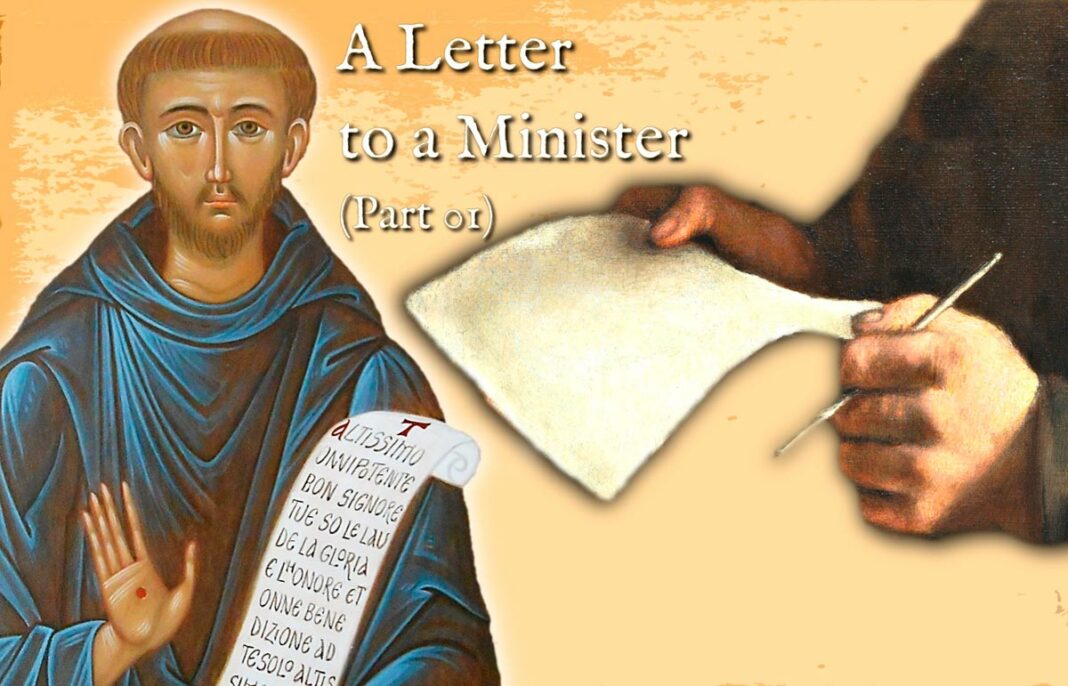To understand the profound message of this letter written by St. Francis eight hundred years ago, we should consider several aspects that comprise it. First, these words are addressed to a minister of the Order of Minors[1], sometime between 1221 and 1223[2]. Another aspect to consider is that this letter can be divided into two parts: 1) from verse 1 to 12, where we might say the main theme is “discernment”; 2) from verse 13 to 22, where we are presented with “life in fraternity”[3].
The Poverello of Assisi writes:
To Brother N … minister. The Lord bless you! I speak to you, as best I can, about the state of your soul. You must consider as grace all that impedes you from loving the Lord God and whoever has become an impediment to you, whether brothers or others, even if they lay hands on you (A Letter to a Minister 1-2; FF 234).
We cannot know for sure what specific problem plagued the “minister,” although we might guess it from what Francis says. However, it is not all that important if we know or not. What is important is that there is a certain “matter” that disturbs the friar’s soul. The friar in question “cannot love God” because he finds himself in a situation that prevents him from doing so, and this makes him suffer. At this point, Francis gives us his first teaching on the art of discernment: everything is God’s grace. For St. Francis, even difficulties, setbacks, illnesses and enemies must be considered “grace.” By this, Francis wants to tell us, 800 years after writing this letter, that setbacks and relational problems in our fraternities are more like “opportunities” for the betterment of our souls.
The setbacks and enemies that a protagonist meets on his path can give him the means of achieving the goal for which he was born. In overcoming these obstacles, he brings out the best version of himself. For example, if Francis ended up giving in to his father or to the horror of the lepers, he would not be St. Francis today, nor would we know his story. In the Earlier Rule, Francis writes:
All my brothers: let us pay attention to what the Lord says: “Love your enemies and do good to those who hate you,” for our Lord Jesus Christ, whose footprints we must follow, called His betrayer a friend and willingly offered Himself to His executioners. Our friends, therefore, are all those who unjustly inflict upon us distress and anguish, shame and injury, sorrow and punishment, martyrdom and death. We must love them greatly for we shall possess eternal life because of what they bring us. (Earlier Rule XXII, 1-4; FF 56).
Until the next reflection in commemoration of the 800th anniversary of A Letter to a Minister.
Friar Elio J. ROJAS
[1] According to C. PAOLAZZI, he was probably a Minister Provincial (Cf. C. Paolazzi, Lettura degli “Scritti” di Francesco d’Assisi, Milan 2004, p. 268).
[2] What is interesting here, according to these dates, is that in 1220, Francis had renounced the institutional leadership of the friars, with Peter CATTANI having been appointed “Prelate” of the Order (Cf. G. G. Merlo, Nel nome di San Francesco. Storia dei frati Minori e del francescanesimo sino agli inizi del XVI secolo, Padua 2006, p. 37) We might ask: Why did this Minister write to Francis and not to Peter CATTANI? Why did Francis reply to the letter, asking the Minister to remain under his obedience, when he himself had renounced the leadership of the Order? These questions, and others, will likely be addressed in future reflections (Cf. C. Vaiani, Storia e teologia dell’esperienza spirituale di Francesco d’Assisi, Milan 2013, p. 209).
[3] Idem. p. 210.









